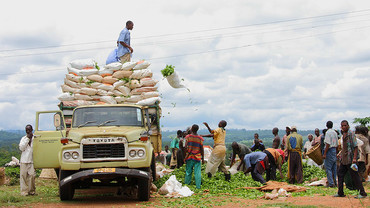Supporting small-scale farmer agency in commercial agriculture: Collective learning on the role of socio-legal empowerment from an international action-research project

Small-scale farmers in low- and middle-income countries face vastly different realities, which translate into diverse challenges and opportunities. Some businesses, governments and development agencies have been promoting smallholder inclusion in global value chains and smallholder commercialisation as an essential part of addressing challenges and creating opportunities. This is happening against a backdrop of growing corporate concentration in agri-food markets, which affords large companies influence over value chain relations and public policy. This context raises important questions over the ability of small-scale farmers or farmer groups to exercise agency – that is, to make choices and influence decisions that shape their worlds.
This report summarises lessons from the Empowering Producers in Commercial Agriculture (EPIC) project – an action-research initiative that combined international evidence gathering and lesson sharing with the testing of diverse agency-enhancing approaches to support small-scale farmers in Malawi and Nepal. These included efforts by producers to: access information and develop collective analysis of challenges and opportunities; strengthen their representative organisations; and engage with other actors – from buyers and input suppliers to government agencies at local to national levels – in order to change trading practices and influence policies. Though these approaches are context-specific and reflect diverse political and socio-economic realities and farmers’ starting points, the report shares learning generated through the project, to stimulate critical reflection by development actors working in the arenas of small-scale farming, agrarian change, agri-food markets and food systems.
Cite this publication
Available at https://www.iied.org/21051iied






